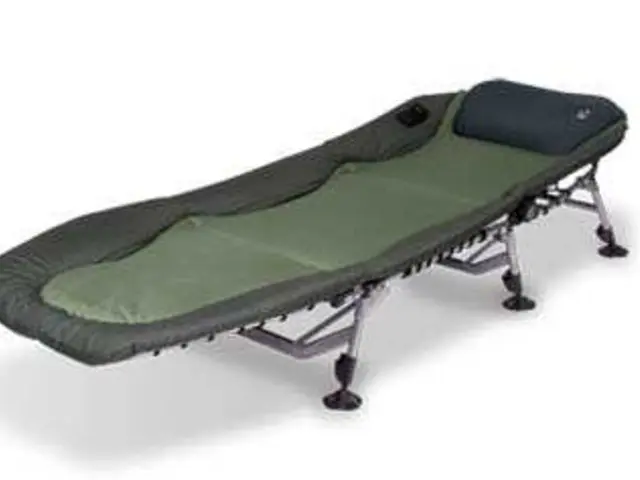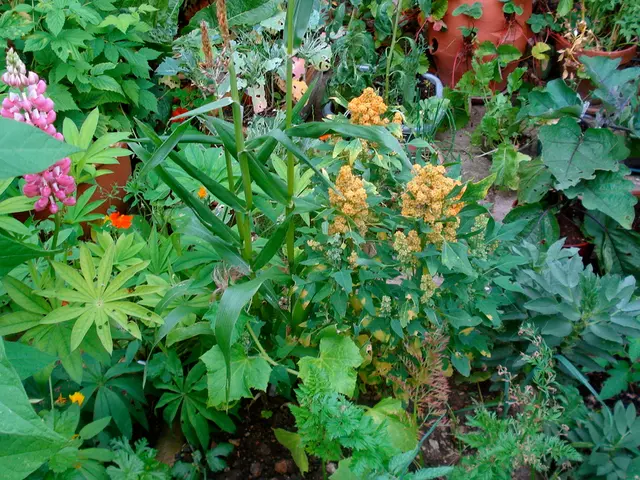Coughing and Sniffles During the Summer Heat - Sudden Hour, Same Pains?
Protecting Yourself from Summer Flu: Top Strategies for Staying Healthy - Strategies for Safeguarding Against Seasonal Flu During Warm Weather Months
The Scribe: Frank OchmannTime Read: -1 Min (who needs breaks in this sweltering season?)
Summer's here, and tensions are high. Not because of the heat, but because of those persistent sniffles and sore throats. Many folks associate these joys with the grim reaper of winter, but the dog days can't escape their wraith. Yep, you guessed it—clear skies, warm rays, and a mucous-strewn respiratory tract. It's enough to make one cry in the rain.
But don't despair, for there are no sneaky flu or coronavirus agents hanging around in October disguises. Nope, the Summer's got her own coven of uninvited quests, itching for an orbital kerfuffle. Those keeping a close eye on pollen allergies know the world's gone mad; the shifting climate has pushed flowers into bloom year-round, making it a sneezefest run amok.
However, our lungs have no sacred, summer-exclusive deals. Viruses and bacteria are determined to wreak havoc on their mucous membrane shrines, even when the weather begs for a pair of swim trunks. In fact, these fellows might just as soon pounce outside their traditional season, with influenza or a Covid resurgence emerging to ruin sunny picnics.
But don't expect the same enemies from you-guess-who season. You can say goodbye to droplets flying in closed quarters and hello to droplet transmission via simple contact. So, the go-to plagues of the year include viruses like adenoviruses sprawling throughout and bacteria like some dastardly mycoplasmas. As for us in the cold climes of our homeland, enteroviruses sure know how to give us a flu-like beat-down in the heat of summer. How you ask? It's quite simple—wet your hand and swing it around, catching the virus via a shake or on doorknobs, shopping carts, and various surfaces one might touch.
Summer'sflu-Naming is Misleading
Alas, summer's masked marauders go by many names, but a "Summer's Flu" is deceitful. Sure, it may seem benign, but sometimes it's far from innocent.
Enter the Summer Allergies
- Plague Masters: Pollen grains, grass seeds, and mold spores.
- Symptoms: Sneezing fits, a runny nose, itchy eyes, and congestion.
- Prevention: Keep those windows sealed tight during pollen rush-hours, shower off after spending time outdoors, and blitz those symptoms with antihistamines or nasal sprays[3].
Bacterial and Parasitic Stomach Storms
- Plague Lords: Salmonella, Campylobacter, Shiga toxin-producing E. coli (STEC), and Cryptosporidium.
- Symptoms:
- Salmonella, Campylobacter, and STEC: Blood-soaked diarrhea, stomach cramps, vomiting, fever, and nausea.
- Cryptosporidium: A diarrhea frenzy, stomach cramps, vomiting, fever, and painful hunger due to a lack of appetite.
- Prevention:
- Food and Water Safety: Sear meat to a crisp, shun the unpasteurized, play it safe with veggies, and maintain proper food care.
- Hygiene: Scrub up regularly, especially after pooping or playing with farm critters.
- Swimming Guardians: A swift steer clear of swallowing water in swimming pools, lakes, and rivers.
- Hydration Station: Don't forget to drink up, plenty of clean water to prevent dehydration.
- Medical Haven: If symptoms linger or intensify, seek out docs to keep those complications at bay[3][4].
- Despite the sunny weather, one might encounter respiratory-conditions such as shortness of breath, cough, and hoarseness due to the presence of viruses and bacteria, which are not exclusive to winter seasons.
- In the realm of science, understanding the causes and preventive measures for these summer health issues is crucial for maintaining health-and-wellness.
- Often mistakenly called the "Summer's Flu," these uninvited health issues can be caused by various agents, including pollen allergies (medical-conditions).
- To counteract the effects of summer allergies, one can implement hygiene practices like keeping windows closed during pollen rush-hours, showering after outdoor activities, and using antihistamines or nasal sprays for relief.







